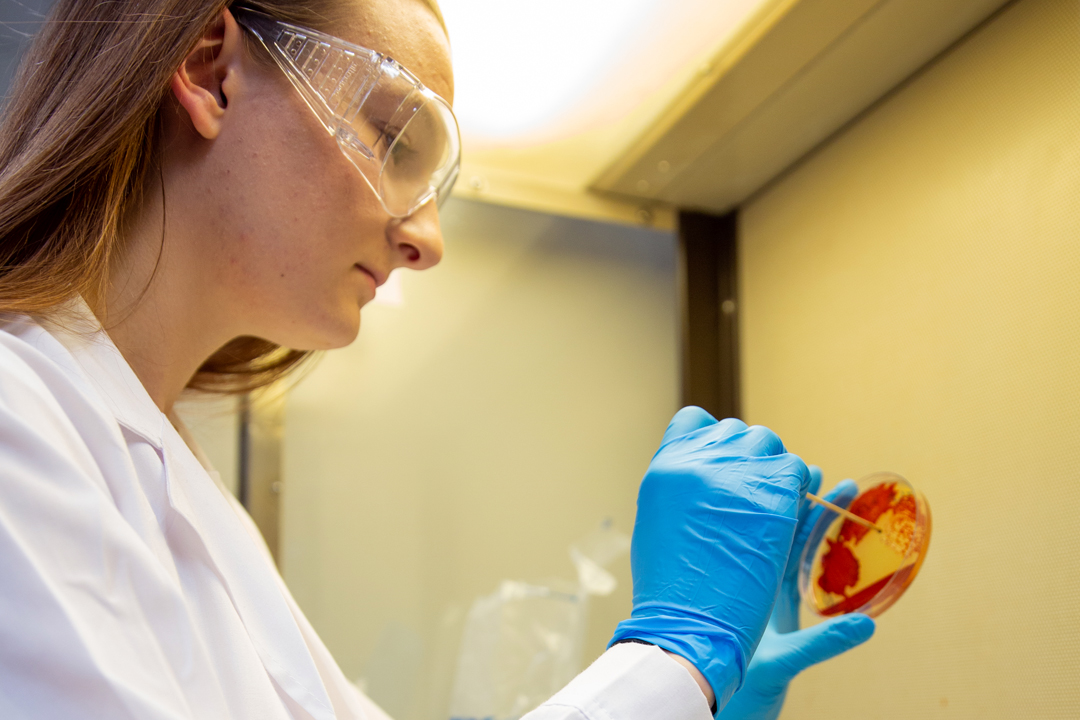Student to Student: Antibiotic resistance
By Nicole Cavanaugh
Nicole Cavanaugh recently finished her last semester of undergraduate education at RIT with a BS in Biotechnology and Molecular Bioscience.
At the Hudson Lab, I worked on new ways to combat antibiotic resistance. The rapid rise of antibiotic resistance has impacted clinically relevant strains of bacteria. Infections are becoming harder to treat because so many of our historically effective drugs are no longer sufficient. It is important for researchers to now identify new classes of antibiotics which bacteria don’t have resistance mechanisms for.
To do this, the lab looks at compounds produced by bacteria as defense mechanisms against other bacteria. Microorganisms compete with each other for space and resources, so many produce inhibitory compounds to hinder the colonization of other species. If these compounds can be isolated and identified, they can be used as a basis for new antibiotics! The lab collects samples from the local environment and isolates colonies on a range of media types, from super minimal to super rich. A select few bacterial genomes are sequenced to allow for the identification of gene clusters potentially related to antibiotic production.
Isolates which have antibiotic-producing potential are grown in liquid media and organic compounds are extracted from the spent growth media. These extractions are tested against lab strains to see if any of the compounds are inhibitory to their growth. To date, I have isolated compounds from two unique bacteria which have antibiotic potential.
How did you come to study Biotechnology at RIT?
In high school, I actually didn’t know that I wanted to study science. At the beginning, I debated between graphic design and biology. RIT stood out to me because it had strong programs in both fields. I decided to focus on Biotech. The last chapter in my high school biology class was all about genetic engineering and how it created new potential for preventing human disease. I was completely sold after that lecture. I was drawn to the potential for solving such major world problems.
How did you become interested in antibiotic resistance?
I started studying antibiotic resistance, kind of by accident. I approached Dr. Hudson about joining his lab and had discussed a different project altogether. He came to me later with a completely new research proposal not long before my start date. And I am so glad he did. I love the project because the rise of antibiotic resistance was discussed heavily in my science classes in high school. So right off the bat, I felt like I was making a difference in a field which I had been following for a few years.
Do you have any advice for other students?
Don’t ever be afraid to try new things! If you find a research experience you love right away, that’s awesome! But still make sure to explore other fields and research experiences. It is super important to become a well-rounded scientist. And if you can do that before you graduate, you will be a more valuable asset to research teams.









